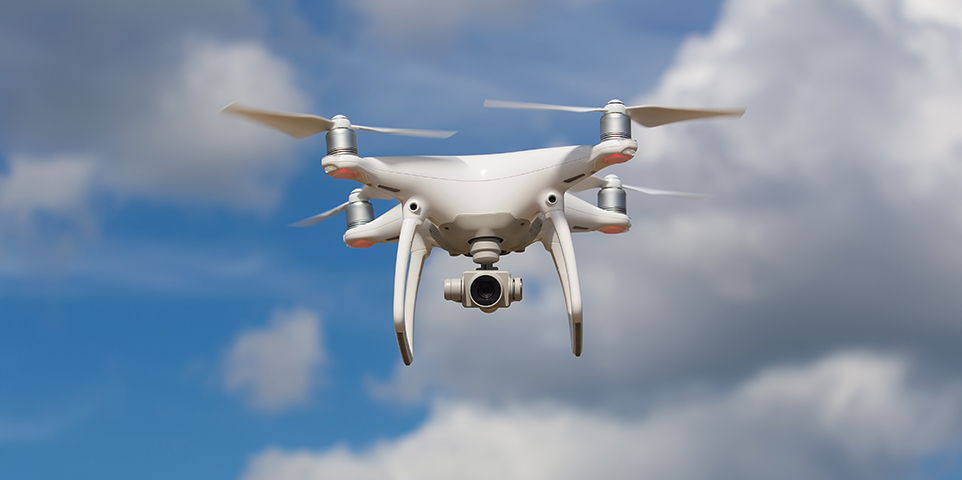MEMBERSHIP
AMPLIFY
EN ESPAÑOL
Connect With Us
- Popular search terms
- Automobile
- Home + Renters
- Claims
- Fraud
- Hurricane
- Popular Topics
- Automobile
- Home + Renters
- The Basics
- Disaster + Preparation
- Life Insurance

Even for recreational use, the Federal Aviation Administration requires that all drones weighing over 55 pounds must now be registered. If you do not register your drone, you may be subject to criminal and civil penalties.
In addition, drones are prohibited from being flown:
In addition, drone usage near disaster areas (such as wildfires or hurricanes) may violate federal, state, or local laws and ordinances, even if an FAA temporary flight restriction (TFR) is not in place. Unauthorized drone operators may be subject to significant fines if they interfere with emergency response operations.
In addition to federal regulations, drone operation is often regulated on a local level, so it's best to check with your city or town to ensure you're flying within the legal parameters.
Most drone operators start out with little or no aviation experience so, even if you follow the regulations and the laws, you might experience pilot error, or unplanned equipment failure. With some models tipping the scales of up to 55 pounds, rogue drones can pose a significant threat to people and property—and to your personal liability. That's why it’s a smart to add an insurance review to your pre-flight checklist.
When acquiring a drone, call your insurance professional and verify your coverage, including exclusions, policy limits and deductibles. Keep in mind all that there may be more exclusions and conditions that apply as drone technology evolves.
To ensure coverage in any instances, it's important to follow the federal and local drone ordinances, as not doing so may negate your insurance coverage in the event of an incident. In addition, your coverage will be nullified if you’re operating your drone in the commission of illegal activities.
Many drone-related incidents may be covered under your homeowners insurance or a renters policy (renters, it's important to have one—your landlord's policy will not provide you any of the coverages below).
If your drone crash-lands into your car, damage may be covered under your auto insurance if you purchased the optional comprehensive insurance, which covers damage to a car from fallen objects and other disasters. (Damage by your drone to other's property—including cars—would be covered by your homeowners or renters insurance).
Note that commercial—that is, business—use of drones is regulated much more strictly by the FAA than recreational drone usage. Among other rules and qualifications, the FAA requires that the drone operator be licensed.
Commercial drones are not covered by your personal insurance policies. If you are operating a drone for business purposes, contact your insurance broker to make sure that you have the appropriate types and amounts of insurance coverage.
As with many rapidly developing technologies, insurance parameters and legal regulation around drone usage is constantly evolving. If you have any questions, check with your insurance professional or hover on over to the FAA website.
Next steps link: Are you more of a water fun person than a sky fun person? Insure your personal watercraft.